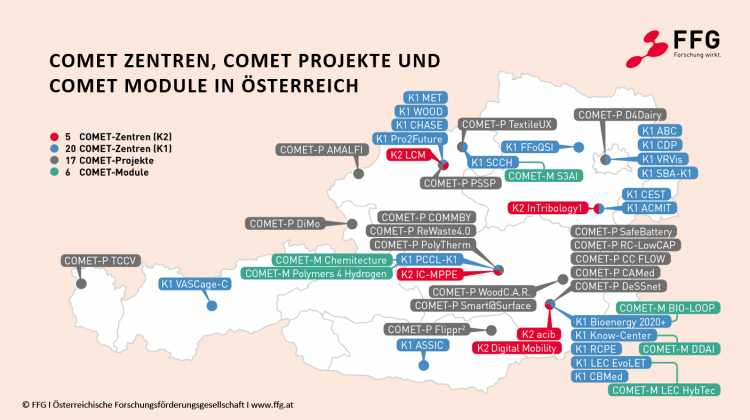Successful Scientific Mid-term Evaluation: SBA Research funded by COMET for another 4 Years
SBA Research, the Vienna Competence Center for Information Security, will be funded for another four years within the framework of COMET – Competence Centers for Excellent Technologies
On 16 June 2020, the mid-term evaluation of SBA-K1, the COMET flagship research program of SBA Research, took place. International reviewers and FFG experts analyzed the work done so far as well as the research projects for the period 2021-2025. SBA Research receives funding under the COMET K1 program since 2014; mid-term evaluations are carried out after the first funding period (4 years) and decide if a COMET center will be renewed for a second funding period. SBA Research has received a very positive evaluation from the jury:
“The reviewers gave us an excellent testimonial for our work so far, but also provided us with constructive feedback regarding our strategic direction for the coming years”, says Edgar Weippl, scientific director of SBA Research.
Top-Level Research For A Secure Society
The COMET program – financed by the federal ministries BMK and BMDW as well as the Province of Vienna and implemented by the FFG – enables SBA Research to conduct Austrian top-level research on an international level in the upcoming years. In times of advancing digitalization, information security is essential. The scientific work done at SBA Research covers the areas of Networked Systems Security, Software Security, Privacy and Secure Societies, and Applied Discrete Mathematics for Information Security. In cooperation with numerous partners from academia and industry, SBA Research contributes to making our digital world secure and safe for everyone, and to protecting individual privacy. Over the next four years, the focus will be on IoT and industrial applications, AI environments and new areas of application for discrete mathematics in information security.
SBA Research is proud to have successfully communicated not only the scientific results of the last years, but also the individuality and enthusiasm of each research group in a virtual way through short, informative videos. Due to the COVID-19 restrictions, the evaluation was done remotely, which posed new challenges for all participants – including different time zones between the US West Coast, Europe and Australia.
The COMET research program SBA-K1 from SBA Research
